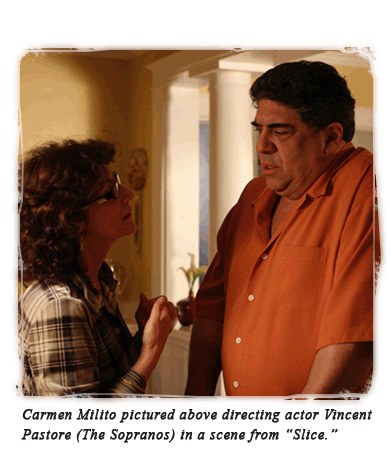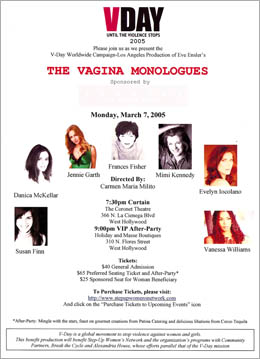Q & A

 WHY SHOULD YOU BE MY COACH?
WHY SHOULD YOU BE MY COACH?
Because I will help you grow as an actor by teaching you the
fundamental skills of the acting profession. You will gain confidence
by learning how to breakdown a scene. You will learn how to rely on the
given circumstances of the play by asking yourself questions: What was
the character doing just prior to this moment? What did he come here to
do? What are the stimuli affecting him – the objects, the
odors, the time of day, the temperature? And most importantly: What
does my character want and why can’t he get it? The answer to
these and similar questions will determine the choices an actor makes
as he brings life to his character. In working with me, you will gain
strength in making choices of physical actions and emotional tone that
will distinguish you as a creative actor from the conventional one.
I’ve had the pleasure of working as a teacher at The Lee
Strasberg Theatre Institute and then with some of the best acting
coaches/directors in the business. In my 25 years as an actor, director, teacher and
coach, I have developed my own technique based on the problems an actor
faces and how to best solve those problems.
WHAT
IS YOUR TECHNIQUE AND WHAT SETS YOU APART FROM OTHERS?
My technique utilizes Method acting that my mentors used, but in an
intensely personal way. I coach one-on-one, period. Acting classes can
be difficult with a busy schedule and a bit intimidating for beginners.
You will not have to sit in a class with thirty other actors waiting
for your turn. I prefer to teach actors who want a one-on-one
relationship with a coach, a relationship that can nurture an actor
across an entire career. This approach allows me to get to know you as
the unique individual that you are and for you to feel free to express
yourself in a safe environment. It also helps me to see where you are
in your life as an actor and to assess your special talents and needs.
Phone sessions are also offered so that you can get the coaching
you’ll need to make the strongest choices just before you
walk into your audition.
I will employ sense memory, emotional memory and relaxation if you are
having trouble in connecting to the needs of the character. The aim is
to show actors how to use their emotions and experiences to break
through barriers. I have a keen sense of when actors are tense and
blocked emotionally, in short, not in touch. I will teach you how to
develop your character, by working directly from the script using
script analysis as we explore the psyche of the character in order to
understand how that particular character navigates life. Once
we’ve discovered the answers to these questions, I will teach
you how to compare your life with that of the characters and then you
will work from your own personal needs to create real and authentic
choices. This will enable you to embody the character so that the
character becomes you. You will be taught to use your inherent emotions
to act as a stimuli, not to self indulgently flail and suffer, but to
inspire and to affectively drive you to a greater realization of your
work.
Another unique feature of my approach is that while you are doing a
scene, I will encourage you to speak out your inner thoughts, feelings
and problems, anything that may be preventing you from getting in touch
with the moment to moment work of the scene, so that we can deal with
it on the spot. This teaches you to become hyper aware of any
inhibitions that block you and how to quickly move past them. As we
progress, I will help you to choose a scene which may include a
scene partner. And I will evaluate and critique your work.
I
HEAR THAT YOU ARE ALSO A DIRECTOR. CAN YOU TELL ME YOUR APPROACH TO
DIRECTING?

 My approach to directing a play is to first find the spine. I do that
through script analysis, which for me, is a vital necessity. I read the
play several times to determine what the play’s main action
is. I learn about the characters, their wants, their needs, their
flaws. I begin to view it, not as a written text confined to the page,
but as a living, ‘breathing-thing-in-motion’. I
read all the parts separately as if I were going to act each of them;
this helps me find the chief motivating action for each character. When
the actors are called together for the first rehearsal I begin the
process of reading the script with the entire cast with the aim of
helping them understand the script and the specific reasons for what
the characters are saying and what they mean. In short, understanding
the author’s intention. This, I find, empowers the actors to
come up with their own ideas and emotions as they develop their
character’s specific needs and wants. While we are in the
process of reading the script, I also will ask the set designer to
explain the set to the actors. Just what the set is and how it looks
and works for the action of the play becomes more meaningful and the
actors’ interest in it increases after the play has been read
several times. It grounds them and strengthens their visualization of
the event we’re creating. When the actors are rehearsing on
their feet, I leave them to make their own choices and discoveries. I
begin to listen and learn how the actors work. I don’t worry
about pace, in fact, I encourage the discovery of moment-to-moment
work. I don’t believe in blocking immediately. I believe the
actors find their characters’ actions and true behavior in
the discovery process. But should an actor get into trouble or the cast
appear to be ‘stuck’, I’m there to guide
them through it and here is when all the solid preparation
we’ve done together pays off.
My approach to directing a play is to first find the spine. I do that
through script analysis, which for me, is a vital necessity. I read the
play several times to determine what the play’s main action
is. I learn about the characters, their wants, their needs, their
flaws. I begin to view it, not as a written text confined to the page,
but as a living, ‘breathing-thing-in-motion’. I
read all the parts separately as if I were going to act each of them;
this helps me find the chief motivating action for each character. When
the actors are called together for the first rehearsal I begin the
process of reading the script with the entire cast with the aim of
helping them understand the script and the specific reasons for what
the characters are saying and what they mean. In short, understanding
the author’s intention. This, I find, empowers the actors to
come up with their own ideas and emotions as they develop their
character’s specific needs and wants. While we are in the
process of reading the script, I also will ask the set designer to
explain the set to the actors. Just what the set is and how it looks
and works for the action of the play becomes more meaningful and the
actors’ interest in it increases after the play has been read
several times. It grounds them and strengthens their visualization of
the event we’re creating. When the actors are rehearsing on
their feet, I leave them to make their own choices and discoveries. I
begin to listen and learn how the actors work. I don’t worry
about pace, in fact, I encourage the discovery of moment-to-moment
work. I don’t believe in blocking immediately. I believe the
actors find their characters’ actions and true behavior in
the discovery process. But should an actor get into trouble or the cast
appear to be ‘stuck’, I’m there to guide
them through it and here is when all the solid preparation
we’ve done together pays off.
©
Carmen Milito. All rights reserved. |